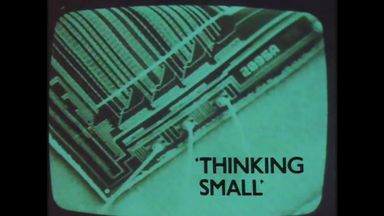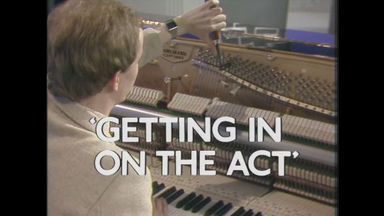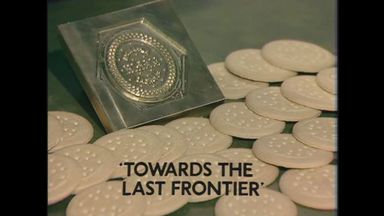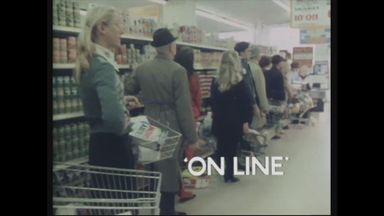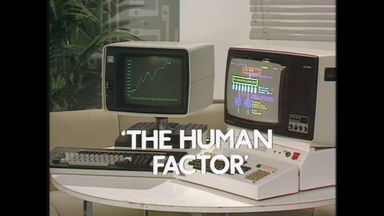Managing the Micro
3. Towards the Last Frontier
Clips from this programme
Brian Redhead introduces a programme about flexible manufacturing. The old way of creating the moulds for making Marie biscuits is dramatically compared with the new, using computer-aided design and manufacture
Duration: 03:59In Holland and Sweden labour-saving robotic machines are programmed to produce or finish a range of parts. In Britain we have yet to catch up
Duration: 02:05A case study at the British Oxygen Company in Skelmersdale shows the advantages of flexible batch production.
Duration: 06:14John Collins (Chairman, British Robotics Association) and John Tuckfield (Assistant Secretary TASS (AUEW) discuss the industrial relations issues involved in introducing new technology. Old and new methods of making wiring harnesses for trucks at Lansing Bagnall's factory are compared, the new method using a robot.
Duration: 05:35An almost fully automatic factory is seen at a Sony factory in Japan, manufacturing hi-fi circuit boards (Sony)
Duration: 01:30Finally, automated quality control at the Ansafone factory followed by a discussion of the polarisation of jobs in industry and the serious lack of people with the right skills to implement change
Duration: 04:14Managing the Micro
1. Thinking Small
First broadcast: 17th May 1981
Duration 24:46
BRIAN REDHEAD examines some of the implications of the new technological revolution for people in industry today. 1: Thinking Small: 'Software control' is said to be the key to the importance of 'the micro'. But what does that mean? And how is microelectronics helping small companies to stay competitive at a difficult time? Film editor M. A. C. ADAMS Producer DAVID ALLEN
2. Getting in on the Act
First broadcast: 24th May 1981
Duration 24:23
BRIAN REDHEAD examines some of the implications of the new technological revolution in industry. 2:Getting in on the Act: It is said that companies must 'think micro' because if they don't others will. But how can a micro be introduced into a new product? And how much risk is there? An electronic piano tuner, a greenhouse controller, a tape measure and a digital read-out for machine tools help show what is involved. Film editor U. A. C. ADAMS Producer DAVID ALLEN
3. Towards the Last Frontier
First broadcast: 31st May 1981
Duration 24:35
BRIAN REDHEAD examines some of the implications of the new technological revolution for people in industry today.3: Towards the Last Frontier: Britain's industrial survival may depend on the readiness of companies to adopt flexible, computer-based manfacturing methods. But flexibility is not just a matter of equipment. It's also a question of attitudes and the ability to come to terms with the human effects of change. Director: DAVID SCOTT COWAN Producer: DAVID ALLEN
Now playing
4. On Line
First broadcast: 7th June 1981
Duration 24:30
BRIAN REDHEAD examines some of the implications of the new technological revolution for people in industry today. 4: On Line: Laser supermarket check-outs, new time clocks at British Leyland, and Viewdata terminals in the local garage are only the tips of a number of electronic icebergs-networks of information links which are beginning, for good or ill, to have a far-reaching effect on the high street and on white-collar jobs in industry. Director DAVID SCOTT COWAN Producer DAVID ALLEN
5. The Human Factor
First broadcast: 14th June 1981
Duration 24:27
BRIAN REDHEAD examines some of the implications of the new technological revolution. 5: The Human Factor: The office is ripe for major changes and there have already been disputes over the introduction of new equipment such as word processors. How do people react to the micro? Is the spread of the new technology inevitable? Director DAVID SCOTT COWAN Producer DAVID ALLEN








